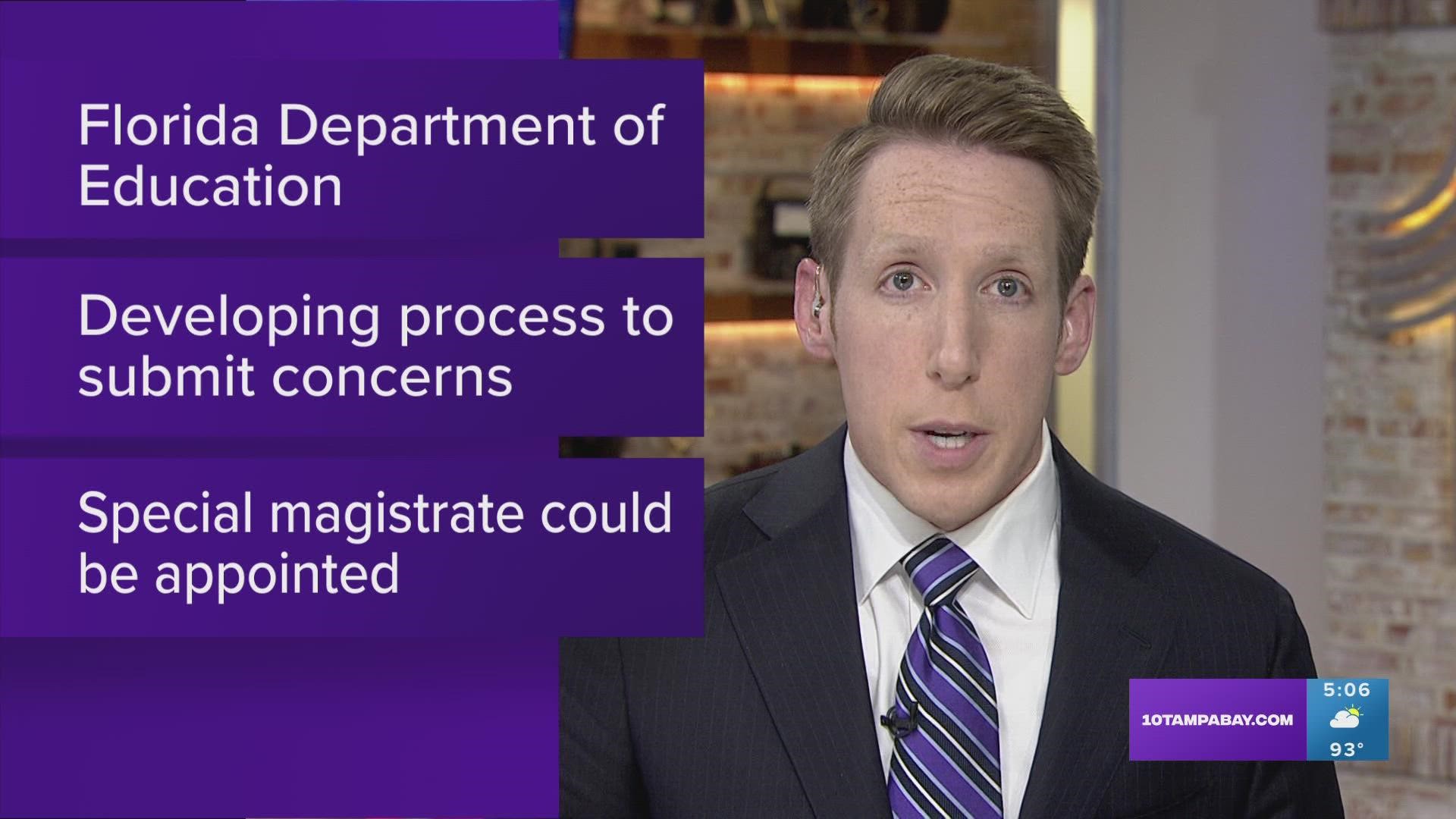TALLAHASSEE, Fla. — Florida's controversial "Parental Rights in Education" law — known by critics as the "Don't Say Gay" law — is set to take effect on Friday. But, specific details of the legislation are still being workshopped by the state's education leaders.
The legislation, which has been a topic of debate throughout the country, bars educators from teaching about sexual orientation or gender identity to students in kindergarten through third grade. It gives school districts the power to ban such topics beyond third grade if leaders deem them not age or developmentally appropriate.
The law also spells out new levels of parental authority over what happens in the classroom. For instance, schools will be required to notify parents if educators noticed any major changes in their child's health or welfare.
The law provides a framework that allows parents to sue the school if they think procedures infringe on their rights to raise their own children.
Specifically, under the legislation, parents may present complaints to the school principal or someone else who is designated to receive such complaints. The school then has 30 days to resolve the concern or provide a statement of the reasons for not resolving the concern.
If a concern is not resolved by the school district, a parent has two options: take legal action, or request the Commissioner of Education to appoint a special magistrate to examine the complaint.
The process of involving a special magistrate was the topic of the June 29 workshop held by the Florida Department of Education.
On Wednesday, state education leaders met to discuss a rule related to the special magistrate process.
"The purpose of this rule development is to craft a rule describing the process for a parent to request the appointment of a special magistrate when a parent’s concern for his child’s welfare under the provisions of s. 1001.42(8)(c), F.S., have not been satisfactorily resolved at the local level by the school principal or by the school district," a notice about the meeting said.
The President of Florida's largest union, the Florida Education Association, Andrew Spar, said before legal processes are decided, there needs to be more clarity on the law. He also said educators across the state have questions about what the law means in practice.
"The questions have been, one, we don't teach sex education in grades K through three. Why did they need a law to say we shouldn't teach sex education in grades K through three?" Spar said. "Two, what does it mean when it says age-appropriate or developmentally appropriate curriculum? What curriculum are they talking about in our upper grades? What does this do for clubs like the Gay-Straight Alliance clubs that a lot of our high schools have?
"What does it do for students who identify as part of the LGBTQ community and want additional support services in their schools? So those are the kinds of questions that continue to come up," he added.
Without official guidance from the Florida Department of Education, Spar advised educators to continue their work as normal.
"Unless we get guidance from the Department of Education in Tallahassee, I think districts should continue to promote and support students and teachers like they've done every other year. I don't think they should change anything because the premise of this bill was based on a falsehood that we were teaching kids sex education in grades K through three," said Spar.
For teachers who fear legal repercussions, Spar said his union is there to support them.
"As a union, we're going to stand behind our members. So I would encourage anyone who works in our schools to be part of their union," he said. "But I'm also going to say that as educators, we have an ethical and moral responsibility to teach kids, care for kids, and to keep kids safe. And we should continue to do that."
Florida Gov. Ron DeSantis has shown support for the divisive legislation since it was introduced.
"At the end of the day, my goal is to educate kids on the subjects —math, reading, science — all the things that are so important," the governor said during a February press conference. "I don’t want the schools to kind of be a playground for ideological disputes or to try to inject."
Critics, on the other hand, fear it will marginalize the LGBTQ+ community.

